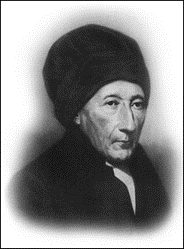Thomas Reid
1710-1796
Scottish philosopher who rejected the sceptical Empiricism of David Hume in favour of a “philosophy of common sense,” later espoused by the Scottish School. Reid studied philosophy at Marischal College, Aberdeen, before serving as Presbyterian pastor at New Machar (1737–51). A lifelong interest in Hume dated from this period. His first critique of Hume was An Inquiry into the Human Mind on the Principles of Common Sense (1764). Lengthy studies convinced Reid that Hume’s Skepticism was incompatible with common sense, for both human behaviour and the use of language provide overwhelming evidence to support such truths as the existence of a material world and the retention of personal identity in the midst of continuous change. Reid’s Essays on the Intellectual Powers of Man (1785) further extended his criticism of Hume’s epistemology, and his Essays on the Active Power of Man (1788) defended rationalistic ethics against a current of subjectivism. Both these books influenced British philosophers of the 20th century. The Works of Thomas Reid, 2 vol., edited by William Hamilton, were published in 1846 (8th ed., 1895).
